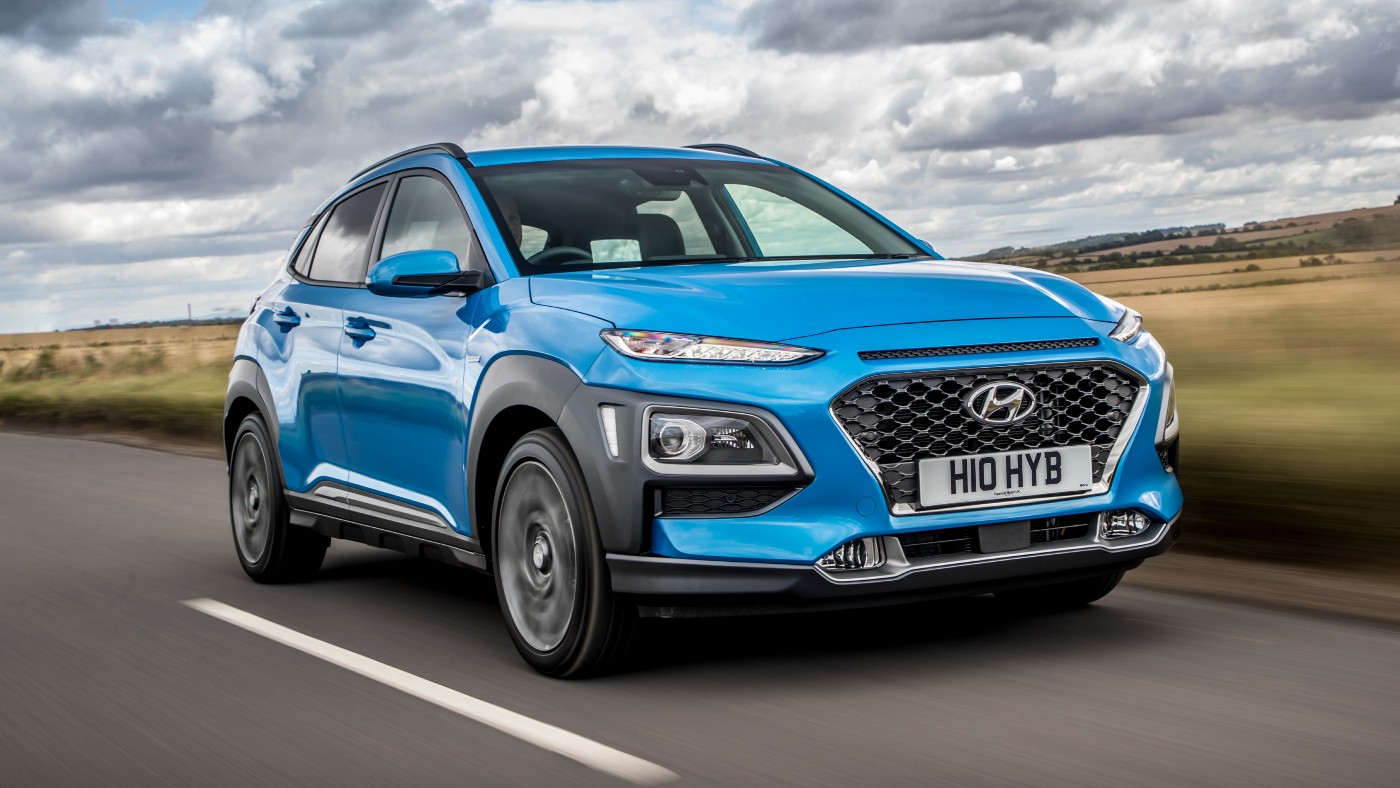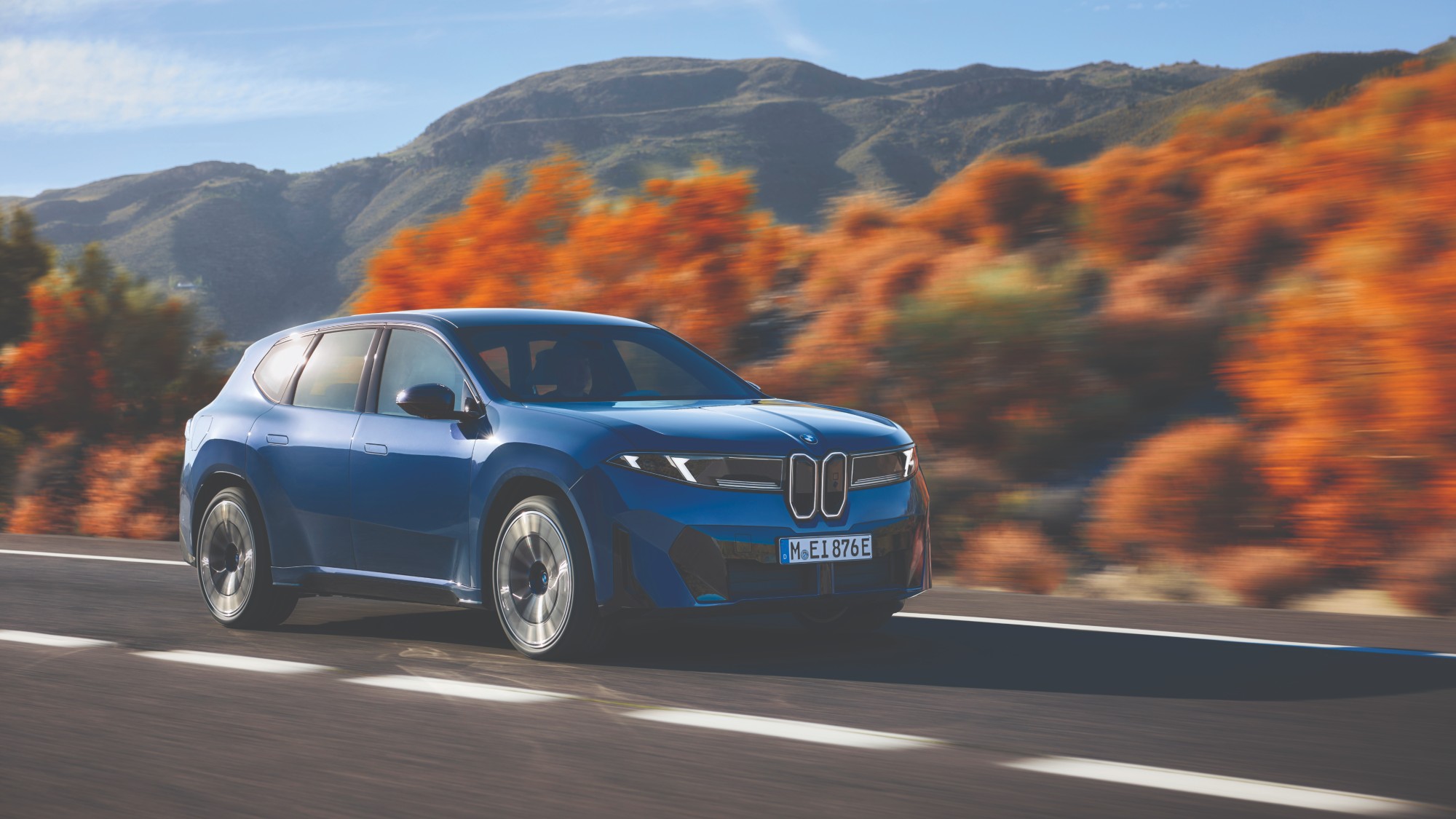The pros and cons of hybrid cars
Part-electric vehicles produce lower emissions but they may not work for every lifestyle

A free daily email with the biggest news stories of the day – and the best features from TheWeek.com
You are now subscribed
Your newsletter sign-up was successful
With the climate crisis intensifying and electric vehicles becoming more affordable, consumers are increasingly making the shift from petrol to electric cars.
For those hesitant to make the leap, hybrid cars can be a good compromise. Using both a petrol or diesel engine and an electric motor, drivers can produce lower emissions while still having petrol power as a back-up.
Hybrid vehicles are taking a bigger and bigger share of the UK car market, with sales in the UK increasing by 40.6% in the year to January. However, they still lag behind petrol and diesel internal-combustion engine (ICE) cars in new sales, with ICE vehicles accounting for 44.7% of all new car sales in January.
The Week
Escape your echo chamber. Get the facts behind the news, plus analysis from multiple perspectives.

Sign up for The Week's Free Newsletters
From our morning news briefing to a weekly Good News Newsletter, get the best of The Week delivered directly to your inbox.
From our morning news briefing to a weekly Good News Newsletter, get the best of The Week delivered directly to your inbox.
The first hybrid car to go on sale on the US market was the Honda Insight in 1999 and that was followed by the Toyota Prius, which arrived in the US and Europe in 2000.
Today, there are three types of hybrids available on the market, according to Motability:
- Mild hybrid vehicles (MHEVs) are the closest hybrid to a traditional petrol-powered car. They use an electric motor for certain features, like air conditioning or starting the car. The “combustion engine” is always the “main source of power” in these cars.
- Full hybrid vehicles (FHEVs) use both electric battery power and fuel to run the car. They are “self-charging” and will do so whenever the car is braking, meaning users of these vehicles don’t have to plug in to charge them.
- Plug-in hybrid vehicles (PHEVs) are similar to FHEVs because they also use electric motors and fuel. However, the electric batteries in these cars are bigger than in other hybrids, so they require more charging time at stations.
It’s important to keep these differences in mind when addressing the pros and cons of hybrid cars.
1. Pro: better for the environment
One of the most popular arguments in favour of hybrids is that they are greener than ICE cars. A study by Which? found that the five lowest-emission non-electric cars were all hybrid models, with the Toyota Prius Plug-In Hybrid the lowest of the lot. The highest emissions in the study came from the Subaru Forester, a diesel model.
A free daily email with the biggest news stories of the day – and the best features from TheWeek.com
Using a hybrid over petrol or diesel vehicles reduces emissions. According to a separate Which? study, “petrol hybrids emit around 24% less than petrol or diesel” cars. With the battery and engine working together, the car also requires fewer stops at petrol stations.
In addition, “many cities are switching their public transportation and service vehicles over to hybrid cars and buses”, in order to be more “environmentally responsible”, said Conserve Energy Future.
2. Con: higher upfront costs
Although the cost of hybrid and fully electric cars has decreased in the last two decades, hybrid cars are still significantly more expensive than engine-powered vehicles.
According to the Office for National Statistics, in 2021, the average price paid for petrol and diesel cars was £29,018, while the average purchase price for hybrid cars was £36,633.
Maintenance costs are another thing to keep in mind. Unfortunately, because technology is advancing so quickly, there are still few mechanics who have the ability to repair these kinds of cars. For instance, said Fixter, if your hybrid car is serviced at an independent garage or high-street service centre, then “you’re looking at an extra £20-ish for the trouble”.
Hybrid cars are generally efficient, so maintenance is needed less regularly, but something like a battery change remains pricey. And PHEVs require the owner to install a charging station in their homes, to charge their batteries efficiently.
3. Pro: save on petrol costs
Hybrid cars might be more expensive to buy, but the addition of an electric battery allows for less expenditure on petrol. Hybrids use up to 30% less fuel per mile than conventional vehicles, said the RAC.
With two power modes available, eco and power, the driver of a hybrid can switch between them to ensure maximum efficiency from the car, lowering petrol consumption and maintenance costs.
The amount of petrol used varies between the three types of hybrids, but an FHEV, the Toyota Yaris Cross 1.5 Hybrid, was the most fuel-efficient car in a recent WhatCar? test. It returned 103.3mpg in town driving and an overall 60.1mpg. The magazine also pointed out that in the UK, some owners can get even more benefits, like “lower first year road tax,” and could “possibly [avoid] congestion charges”.
4. Con: not for long distance
Hybrid cars work best when going short distances, at slower speeds, according to Tech Guide. This makes them particularly advantageous for those living in a city. However, this also makes them impractical for those who frequently drive longer distances.
The battery in hybrid cars recharges when a driver hits the brakes, or is stopped. This makes the electric battery almost useless when driving long distances on motorways.
Charging stations are also in short supply in the UK. The government has a target of 300,000 charging stations by 2030. As of 1 January 2023, said This Is Money, there were 37,055 public charging points in the UK.
5. Pro: future-proofed
Purchasing a hybrid car provides drivers with the comforts of the past while preparing them for the future. The market is changing rapidly and making the change from petrol or diesel cars now will stop you from being left behind.
“Most automakers plan to transition to an all or mostly EV [electric vehicle] lineup over the next decade,” according to MarketWatch. The only thing holding back this push is the lack of “charging infrastructure”. Once these are more readily available, the market for electric vehicles will grow even further.
6. Con: less power
For those who require significant power from their vehicles, such as farmers, construction workers or contractors, a hybrid might not be the best choice.
Hybrids have both an electric motor and an ICE, but “neither the gasoline engine nor the electric motor works as strongly as they do in conventional gasoline or electric cars”, said Kia.
Hybrids, according to Conserve Energy Future, generally have a smaller petrol engine than ICE cars and their electric batteries don’t make up for the power lost in the smaller engine.
-
 Moltbook: The AI-only social network
Moltbook: The AI-only social networkFeature Bots interact on Moltbook like humans use Reddit
-
 Judge orders Washington slavery exhibit restored
Judge orders Washington slavery exhibit restoredSpeed Read The Trump administration took down displays about slavery at the President’s House Site in Philadelphia
-
 Kurt Olsen: Trump’s ‘Stop the Steal’ lawyer playing a major White House role
Kurt Olsen: Trump’s ‘Stop the Steal’ lawyer playing a major White House roleIn the Spotlight Olsen reportedly has access to significant U.S. intelligence
-
 BMW iX3: a ‘revolution’ for the German car brand
BMW iX3: a ‘revolution’ for the German car brandThe Week Recommends The electric SUV promises a ‘great balance between ride comfort and driving fun’
-
 The best new cars for 2026
The best new cars for 2026The Week Recommends From SUVs to swish electrics, see what this year has to offer on the roads
-
 Trouble on the seas as cruise ship crime rates rise
Trouble on the seas as cruise ship crime rates riseThe Explainer Crimes on ships reached nearly a two-year high in 2025
-
 The ins and outs of experiencing the best of travel by Amtrak
The ins and outs of experiencing the best of travel by AmtrakThe Week Recommends The journey is slower, but the scenery is stunning
-
 David Attenborough at 99: a 'radical' voice for climate action
David Attenborough at 99: a 'radical' voice for climate actionIn The Spotlight In his new film 'Ocean', TV's best-known naturalist delivers his strongest message yet
-
 The secrets of lab-grown chocolate
The secrets of lab-grown chocolateUnder The Radar Chocolate created 'in a Petri dish' could save crisis-hit industry
-
 'Airport theory': has the viral TikTok trend gone too far?
'Airport theory': has the viral TikTok trend gone too far?Flight passengers are trying out a 'reckless' new theory that has varying results
-
 'Baby Boom' – the jet that could bring back supersonic travel
'Baby Boom' – the jet that could bring back supersonic travelThe Explainer The prototype's successful test could pave the way for the next Concorde